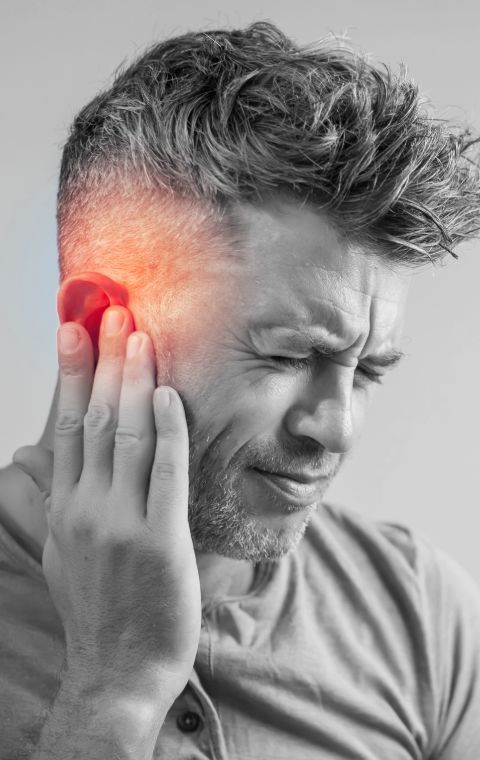
Earache
Earache and ear infections are a very common complaint in the pharmacy, especially in children. Did you know that three out of four children will have suffered from an ear infection by their third birthday?
Earaches mostly resolve by themselves, but sometimes they require intervention. Read below for more information on earaches and what symptoms to look out for.
What causes an earache?
Earaches can be caused by many things; bacterial or viral infections, wax build-up, injury to the inside of the ear (for example, with a cotton bud), or even a particularly heavy cold. Most earaches are caused by viral infections and should clear up by themselves within a day or two.
Glue ear
Also known as Acute Otitis Media (AOM). This is where fluid builds up behind the eardrum causing pressure and pain. It is most common in children and can cause a temperature as well as pain. Treatment may require antibiotics - consult your GP if you have any pus or discharge from your ear.
Blockage
Earache can be caused by earwax or a foreign object in the ear. If the cause is earwax, you can purchase drops over the counter to try to soften the wax, if this does not work, you can visit your GP who will irrigate the ear. If the blockage is caused by a foreign object visit your GP immediately, do not attempt to dislodge the object as this may push it further into the ear.
Pressure changes
Moving from areas of low to high pressure (or vice versa) can cause a build-up of pressure in the middle ear. If you have stuffed ears after a flight, try chewing on gum or sucking on boiled sweets, as swallowing pushes air through the Eustachian tube (the small canal that connects your middle ear to the outside world), which might help to restore normal pressure. You can treat any pain with over the counter painkillers, but if your symptoms persist contact your GP.
Throat infection
If along with an earache, you are finding it difficult to swallow and have a sore throat, you may actually have a throat infection. You can treat your symptoms with over the counter pain relief, but if your symptoms do not clear or get worse very quickly, contact your GP or CarePlus Pharmacist.
Dental abscess
Earache can also be caused by dental issues which can cause pain to radiate to your ear. If you suspect you have a dental abscess (an infection that causes pus to collect in your gums) make an appointment with your dentist straight away.
What are the symptoms of an earache?
- Pain that may be dull or sharp
- A feeling of pressure inside the ear
- Ears feeling stuffed
- Loss of balance
If you have any discharge from your ears, loss or change of hearing, swelling around the ear, pain in both ears, or a very high temperature, it’s best to contact your GP as soon as possible.
How to tell if a child has an ear infection
Ear infections are very common in young children, who often cannot communicate their symptoms. Your child may have an earache if they:
- Are pulling or rubbing at their ear
- Are not responding to sounds as normal
- Seem slightly off-balance
- Seem irritable
- Have a high temperature
Consult your GP if your child has:
- A very high temperature (A normal temperature is between 36 and 36.8ºC (96.8 and 98.24ºF). In children, any temperature of 38°C (100.4°F) or above is considered high and is classed as a fever. To find out if your child has a fever, place a thermometer under their armpit or use a special ear thermometer.)
- Swelling around the ear
- Pain in both ears
- Fluid coming from the ear
- Something stuck in the ear
- An earache for more than 3 days
- Hearing loss or a change in hearing
- A severe sore throat or vomiting
If your child has a temperature or pain, you can use over the counter painkillers such as ibuprofen or paracetamol to treat their symptoms if they are of a suitable age. If you are concerned about your child, you can call our friendly CarePlus Pharmacists to discuss their symptoms.
How to treat an earache at home
To treat mild earaches at home, you can try a few simple things:
- Use painkillers such as ibuprofen or paracetamol to manage any pain
- Hold a warm compress against your ear
- Drink plenty of fluids
- Sleep sitting upright
If you have any concerns about your symptoms, call into your nearest CarePlus Pharmacy. Our friendly pharmacists and their teams can offer you advice and a range of treatment options.